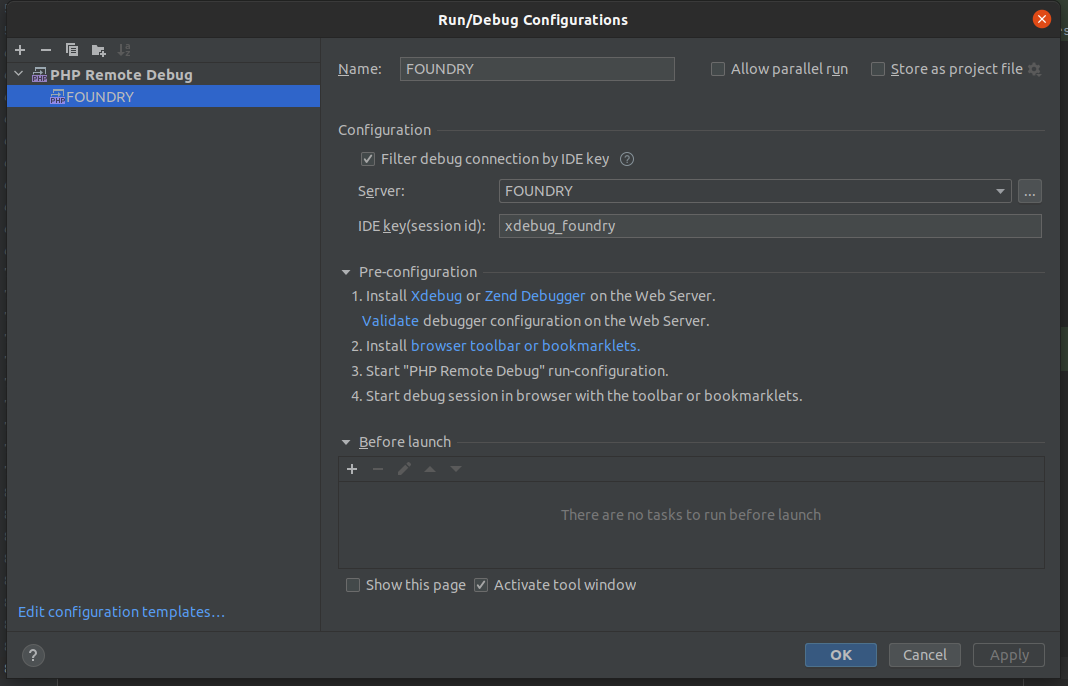Foundry makes creating fixtures data fun again, via an expressive, auto-completable, on-demand fixtures system with Symfony and Doctrine:
$post = PostFactory::new() // Create the factory for Post objects
->published() // Make the post in a "published" state
->create([ // create & persist the Post object
'slug' => 'post-a' // This Post object only requires the slug field - all other fields are random data
])
;The factories can be used inside DoctrineFixturesBundle to load fixtures or inside your tests, where it has even more features.
Foundry supports doctrine/orm (with doctrine/doctrine-bundle),
doctrine/mongodb-odm (with doctrine/mongodb-odm-bundle)
or a combination of these.
Want to watch a screencast 🎥 about it? Check out https://symfonycasts.com/foundry
The test suite of this library needs one or more database, and static analysis needs to be ran on the smaller PHP version supported (currently PHP 7.2), then it comes with a full docker stack.
You must install docker and install docker-compose at first before running the tests.
The library is shipped with a Makefile to run tests.
Each target will build and start the docker stack and install composer only if needed.
$ make help
validate Run sca, full test suite and validate migrations
test Run PHPUnit tests suite
sca Run static analysis
database-generate-migration Generate new migration based on mapping in Zenstruck\Foundry\Tests\Fixtures\Entity
database-validate-mapping Validate mapping in Zenstruck\Foundry\Tests\Fixtures\Entity
database-drop-schema Drop database schema
composer Run composer command
docker-start Build and run containers
docker-stop Stop containers
docker-purge Purge containers
clear Start from a fresh install (use it for troubleshooting)Use double-dash to pass any PHPUnit options or arguments with make:
$ make test -- --stop-on-failure
$ make test -- --filter FactoryTest
# don't use "=" options value. ie: don't do this:
$ make test -- --filter=FactoryTestSame syntax is available for composer:
$ make composer -- info symfony/*You can create a .env file to change the context in which tests will execute:
USE_ORM=1
USE_ODM=1
USE_DAMA_DOCTRINE_TEST_BUNDLE=1
SYMFONY_REQUIRE=5.4.* # allowed values: 5.4.* | 6.0.* | 6.1.* | 6.2.*
PHP_VERSION=8.0 # allowed values: 8.0 | 8.1 | 8.2
PREFER_LOWEST=1 # force composer to request lowest dependenciesYou can also add these variables to the .env file to change the ports used by docker:
MYSQL_PORT=3307
POSTGRES_PORT=5434
MONGO_PORT=27018You can execute any command into the php container using docker compose:
$ docker-compose exec php [your commmand] # or "docker compose" depending on your compose versionThe php container is shipped with xdebug activated. You can use step by step debugging session with PhpStorm: you should
create a server called FOUNDRY in your PHP Remote Debug, with the IDE key xdebug_foundry
IF any problem occurs with the docker stack or a make target, try to run make clear.
Whenever an entity in the fixtures is added or updated a migration must be generated with make migrations-generate
The AAA style of testing was first introduced to me by Adam Wathan's excellent Test Driven Laravel Course. The inspiration for this libraries API comes from Laravel factories and christophrumpel/laravel-factories-reloaded.


